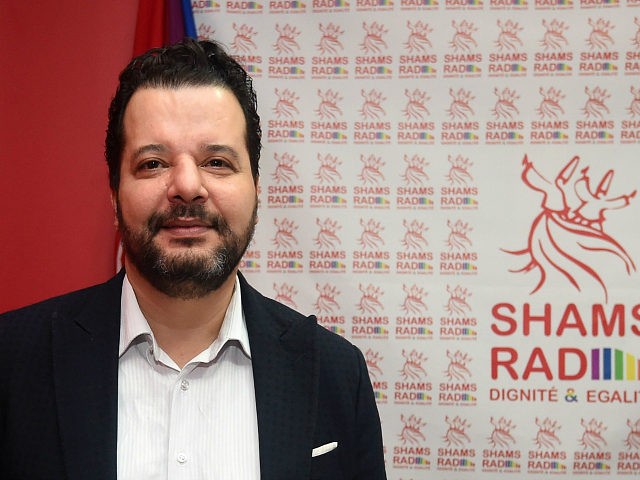Openly gay Tunisian lawyer and prominent LGBT rights advocate Mounir Baatour wants to become the next president of Muslim-majority Tunisia, where homosexuality is currently punishable by up to three years in prison, several news outlets reported over the weekend.
Islam, which forbids homosexuality, is the official state religion in the North African country. Nearly 100 percent of the population is Muslim, according to the CIA World Factbook and other independent sources.
The pro-Israel Baatour says he is determined to fight despite a nearly non-existent chance of winning.
On Sunday, Deutsche Welle (DW) reported:
There’s still quite a bit of time before Tunisia’s presidential election in November, but a number of people have already declared their candidacy for the highest office in the land. Among them is Mounir Baatour, chairman of Shams, an organization that fights for the rights of homosexual and transgender citizens.
Baatour has been fighting for LGBT rights for years, and now he wants to do so from the top.
The LGBT activist announced his bid for the Tunisian presidency on June 25.
“After so many years fighting for minority rights, I realized that no one can do the job better than I,” Baatour reportedly said as he rolled out his presidential campaign.
“I am calling for the repeal of Article 230, which outlaws homosexuality, from the Tunisian criminal code. The Tunisian people should decide whether they want to bring criminal charges against homosexuals and put them in jail, or if they want to get rid of the law,” he later told DW.
The news outlet noted that his chances of winning are slim, adding that “a survey conducted by the polling institute Arab Barometer shows that only 7 percent of Tunisians condone homosexuality.”
Besides being pro-LGBT, the Tunisian presidential candidate is also pro-Israel, which is also likely to ruffle some feathers in the Islamic country.
“We are calling for normal economic relations with all countries. We believe that enmity toward Israel and love of the Palestinian cause are not Tunisia’s real problems today,” Baatour said last year, according to an article from the Jerusalem Post published on Sunday.
“Baatour faces challenges not only from the country’s widespread contemporary antisemitism targeting the Jewish state but from the Tunisian state’s anti-gay law,” the Jerusalem Post noted.
The presidential hopeful has also vowed to fight for gender equality.
“In Tunisia, women inherit half of what men are entitled to. I want to change that. I am calling for absolute gender equality, just as it’s written in the Tunisian constitution. Gender inequality is unconstitutional,” he told DW in the article posted on Sunday.
LGBT rights have made headlines in Tunisia in recent months. In June 2018, a presidential committee recommended the decriminalization of homosexuality to no avail.
Although some analysts argue that the anti-homosexuality law (article 230) in Tunisia is a holdover from Tunisia’s French colonial period, the North African country’s government invoked strict Islamic rules known as sharia in a bid to shut down the LGBT rights group that the presidential hopeful chairs.
Islamic sharia, which draws on the Quran, calls for the execution of people who engage in homosexual acts. The edict is deeply ingrained in Islamic law and has been affirmed by many prominent Muslim scholars.
The Quran declares gay sex “a despised act … it is forbidden in Islam, completely, absolutely,” Imam Yaseen Shaikh, a senior leader of the Islamic Society of Baltimore, declared in February 2016.
Tunisia is one of about 70 countries where homosexuality is illegal. Many of those countries are predominantly Muslim.
“Despite the pressure, the country’s LGBT community is thriving. In January 2018, Tunisia held its first LGBT film festival in the capital, Tunis, organized by the group Mawjoudin (We Exist). It is one of the four officially recognized LGBT organizations in Tunisia, all of which have emerged since the 2011 revolution,” the Guardian reported in April.

COMMENTS
Please let us know if you're having issues with commenting.